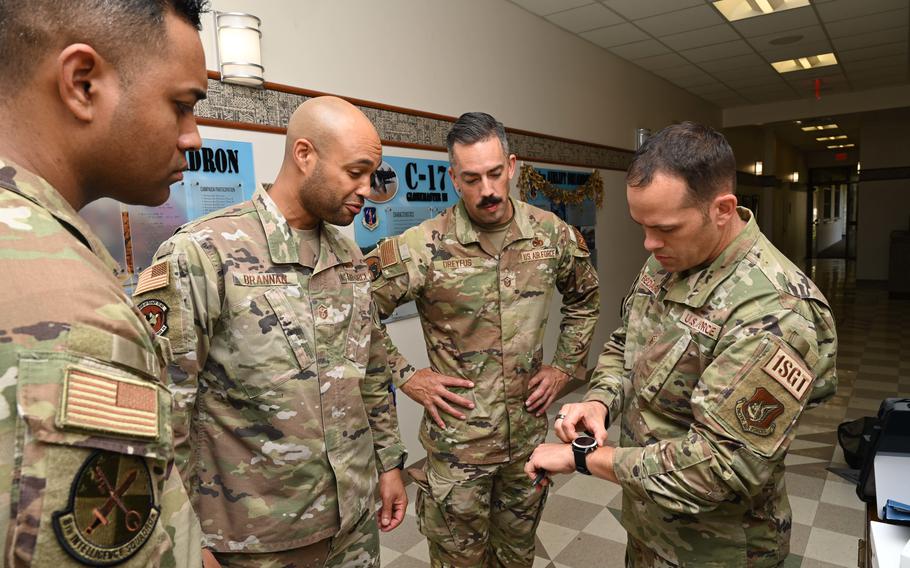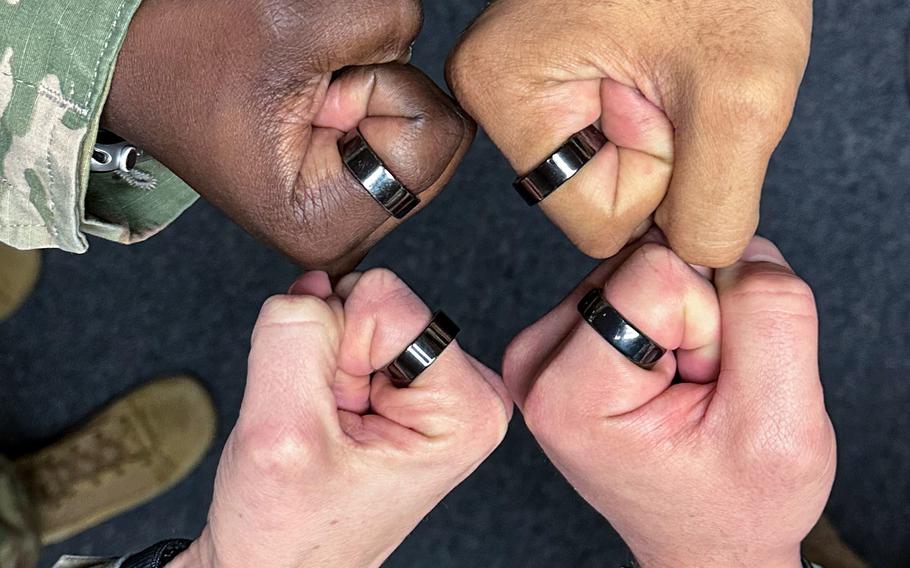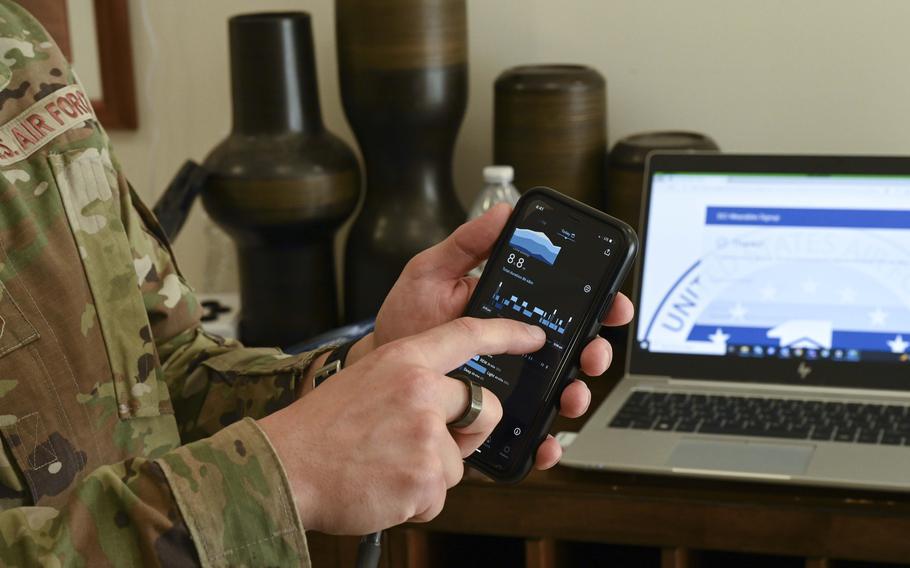
Airmen at Joint Base Pearl Harbor-Hickam, Hawaii, check out a smartwatch April 12, 2023, that is programmed to monitor stress. (Nick Wilson/U.S. Air Force)
New first sergeants across the Air Force will soon be wearing specialized smartwatches and rings as part of a program monitoring stress.
The goal is to alert first sergeants before their stress reaches debilitating levels, Air Force Chief Master Sgt. Christopher Gradel said in a recent interview.
About 1,000 of the wearable devices have been issued so far, and recent graduates of the First Sergeant Academy will have the option to receive them, Air Force officials said Friday.
“If we can just save one person from going down a road of destruction and unhealthy coping mechanisms, then we’re much better off,” said Gradel, the first sergeant of Air Combat Command.
New first sergeants can choose to receive a watch and a ring that monitor biometrics such as temperature, heart rate, oxygen saturation and respiratory rate, said Maj. Michael Vernale, wing director of talent management and assessments at Fort Meade, Md.
These metrics feed into a score ranging from 1 to 12, Vernale said. A climbing score serves as a warning sign that the wearer needs to seek rest or help.
Behind these statistics lie the arduous responsibilities shouldered by first sergeants. “Shirts” advise commanders on critical unit and personnel matters, and they are expected to handle reports of domestic violence and sexual assaults.
“This takes a toll on us, right? But you can’t see that toll unless you look at the data,” Gradel said.
First sergeants tend to ignore their own mental health because they’re focusing on others, Gradel said. In one example, a first sergeant in the program had nightmares after responding to the scene of an airman’s suicide, he said.
That first sergeant didn’t seek medical help until seeing his health score was declining, as measured by the wearables, Gradel said.

Air Force first sergeants at an event March 14, 2023, at Langley Air Force Base, Va., show off rings used with smartwatches to monitor their mental health and overall wellness. (Dana Tourtellotte/U.S. Air Force)
Having an outside measurement is the “secret sauce” of the program, and can help first sergeants allow themselves a break, Air Force officials in the program said.
Since receiving his watch and ring about six months ago, Air Force Master Sgt. Jacob Mulders has watched his score rise, indicating more stress and prompting him to take more breaks than he normally would.
“You’re always aware of the score going up, and how it’s affecting you,” Mulders said.
First sergeants are now using their watches to compare their scores and sleep hours with one another, like they would on a fitness app, Mulders said.
Mulders said he and other airmen had concerns before starting about where the data from the wearables are going.
The aggregated data isn’t being used by the Air Force for any research, said Vernale, an operational psychologist.
In January, Vernale helped start a program, which was then called the Diamond Care Initiative, to support the mental health of first sergeants. The program expanded in November.
Now called the Diamond Care Continuum, it includes first sergeants from major commands in the Air Force. The watches are optional and are just one part of this effort, Vernale said.
Other aspects include mandatory rest days, annual check-ins, monthly training sessions and additional questions during the first sergeant selection process to see how people handle stress.
The watches and wearables came from the Defense Innovation Unit, which used the technology as part of a program to identify infections during the COVID-19 pandemic, a Pentagon statement said in April.

An airman shows statistics gathered from a smartwatch and ring while at an event at Joint Base Pearl Harbor-Hickam, Hawaii, April 12, 2023. The figures are part of an Air Force effort to help first sergeants monitor their stress levels and know when it's time to give themselves a break. (Nick Wilson/U.S. Air Force)